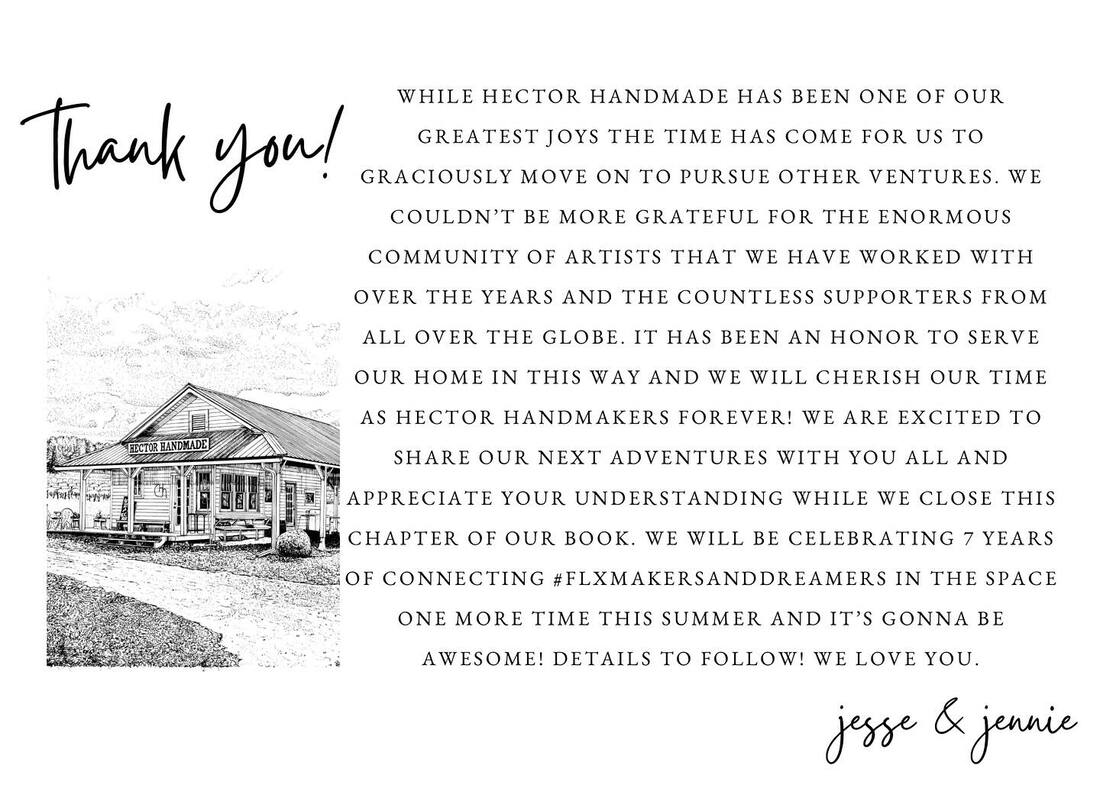Hector Handmade has been one of our greatest joys but the time has come for us to graciously move on to pursue other ventures. We will not be reopening this spring but we will be celebrating 7 years of connecting #flxmakersanddreamers in the space one more time this summer and it’s gonna be awesome! Details to follow.
Visit Hector Handmade for one of the many events in the space, including a monthly artist reception for the work featured on the rotating gallery wall. |
|
LOCATED ON THE EAST SIDE OF
SENECA LAKE IN THE FINGER LAKES REGION. |





